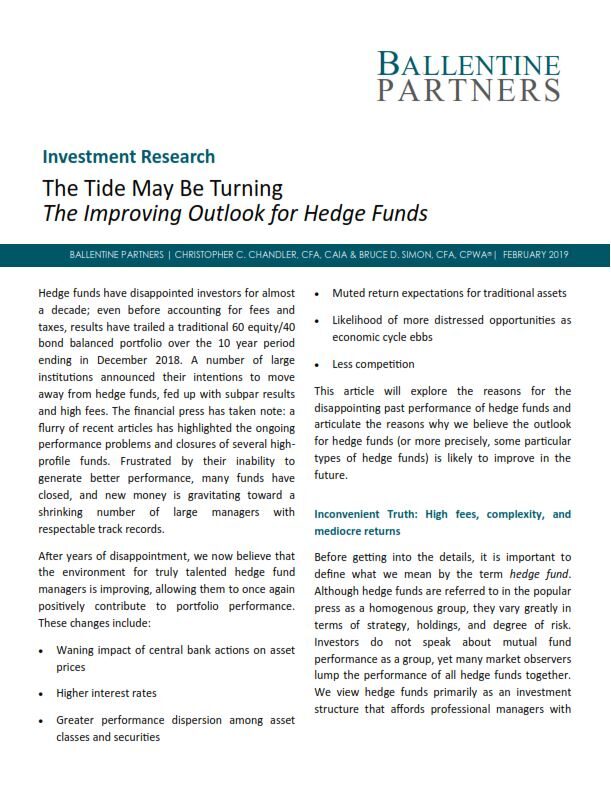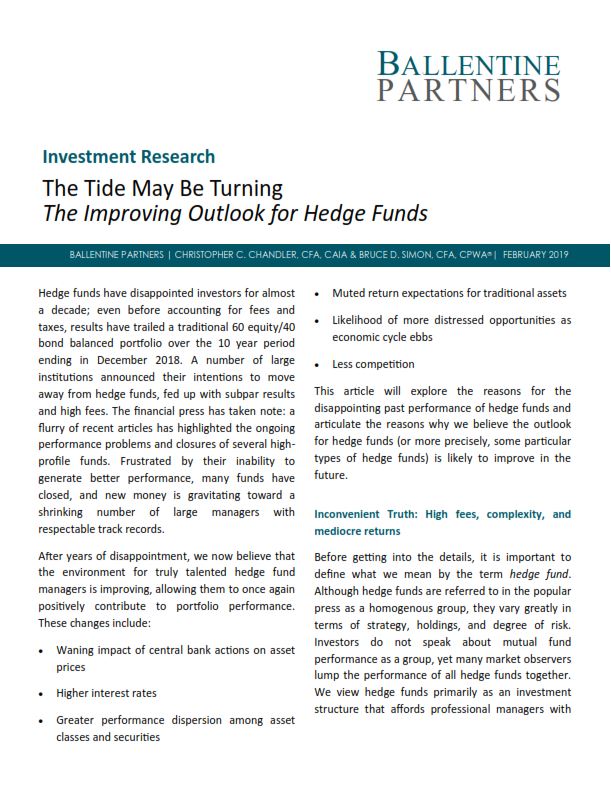Hedge funds have disappointed investors for almost a decade; even before accounting for fees and taxes, results have trailed a traditional 60 equity/40 bond balanced portfolio over the 10 year period ending in December 2018. A number of large institutions announced their intentions to move away from hedge funds, fed up with subpar results and high fees. The financial press has taken note: a flurry of recent articles has highlighted the ongoing performance problems and closures of several high-profile funds. Frustrated by their inability to generate better performance, many funds have closed, and new money is gravitating toward a shrinking number of large managers with respectable track records.
After years of disappointment, we now believe that the environment for truly talented hedge fund managers is improving, allowing them to once again positively contribute to portfolio performance. These changes include:
- Waning impact of central bank actions on asset prices
- Higher interest rates
- Greater performance dispersion among asset classes and securities
- Muted return expectations for traditional assets
- Likelihood of more distressed opportunities as economic cycle ebbs
- Less competition
This article will explore the reasons for the disappointing past performance of hedge funds and articulate the reasons why we believe the outlook for hedge funds (or more precisely, some particular types of hedge funds) is likely to improve in the future.





